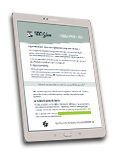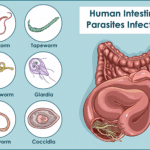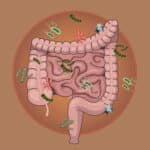Zinc’s Immune-Boosting Arsenal: Unveiling its Essential Mechanisms
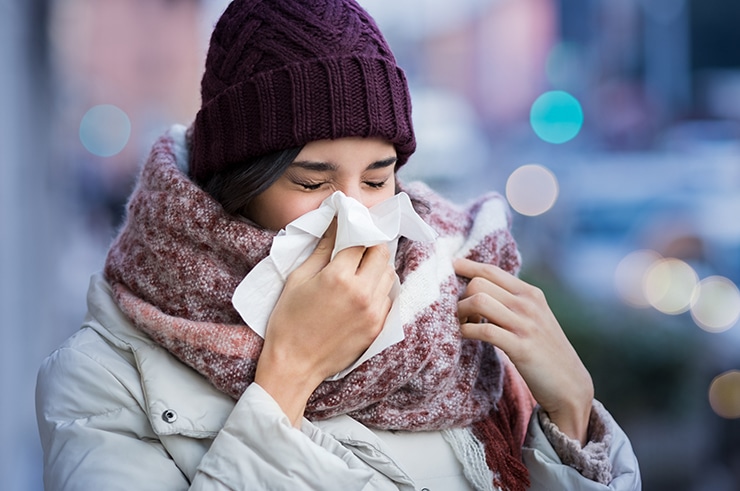
Did You Know?
- If you have a cold, take a zinc lozenge in the first 24 hours to reduce symptom severity and duration of illness.
- Long-term use of zinc interferes with copper absorption and copper is also vital to boosting the immune system.
- Knowing your zinc status, by testing zinc levels in your blood, is important prior to getting sick.
- Zinc is required for the function of over 300 enzymes in the body, as well as the enzyme that helps to produce stomach acid.
Zinc, a vital micronutrient, plays a pivotal role in bolstering the immune system’s defenses. Beyond its recognition as an essential mineral for overall health, zinc operates as a master regulator, orchestrating a series of intricate mechanisms that empower the immune system to fend off infections. In part three in our series: exploring immune-boosting supplements for fall wellness – let’s delve into the depths of how zinc fortifies immune support, its critical importance becomes clear.
Immune Cell Warriors: Enhancing Function and Proliferation
At the core of zinc’s immune-boosting prowess lies its ability to enhance the functionality and proliferation of various immune cells. Zinc contributes to the development and activation of immune cells such as neutrophils, natural killer (NK) cells, and T lymphocytes [1]. These cells are frontline warriors, crucial for identifying and neutralizing invading pathogens. Zinc’s role in promoting the production and maturation of immune cells ensures a robust immune response that can rapidly counter threats.
Inflammation Moderator: Balancing the Immune Response
Zinc acts as a fine-tuner of immune responses, exercising its influence on the delicate balance between pro-inflammatory and anti-inflammatory processes. This mineral plays a critical role in modulating cytokine production, signaling molecules that regulate immune responses [2]. By aiding in the control of cytokine levels, zinc helps prevent excessive inflammation that can lead to tissue damage and autoimmune disorders. Additionally, zinc supports regulatory T cells, which further maintain immune balance [3]. This ability to temper inflammation is essential for mounting an effective immune response without causing collateral damage.
Barrier Reinforcement: Defending Mucous Membranes and Skin
Zinc is a guardian of the body’s physical barriers, such as mucous membranes and skin. These barriers act as the first line of defense against invading pathogens. Zinc’s presence is crucial for the maintenance of epithelial cell integrity, preventing the entry of harmful microorganisms [4]. Furthermore, zinc supports the production of antimicrobial proteins that aid in neutralizing pathogens on mucous membranes [5]. This dual role of zinc as a protector and defender ensures that potential threats are repelled before they can cause harm.
Antioxidant Ally: Shielding Against Oxidative Stress
Zinc steps into the role of an antioxidant, shielding cells from oxidative stress. This is particularly relevant to immune cells, as they produce reactive oxygen species (ROS) during their defense activities. Zinc’s antioxidant properties neutralize ROS, preventing cellular damage and maintaining immune cell functionality [6]. This safeguard against oxidative stress contributes to the overall effectiveness of immune responses.
Enzymatic Support: Enabling Immune Functionality
Zinc acts as a cofactor for numerous enzymes involved in various biochemical processes, including those crucial for immune system functionality. Zinc-dependent enzymes contribute to processes like DNA synthesis, protein digestion, and cell division [7]. These enzymatic activities are fundamental to immune cell development, proliferation, and activity. Without sufficient zinc, these essential processes can be compromised, leading to a weakened immune response.
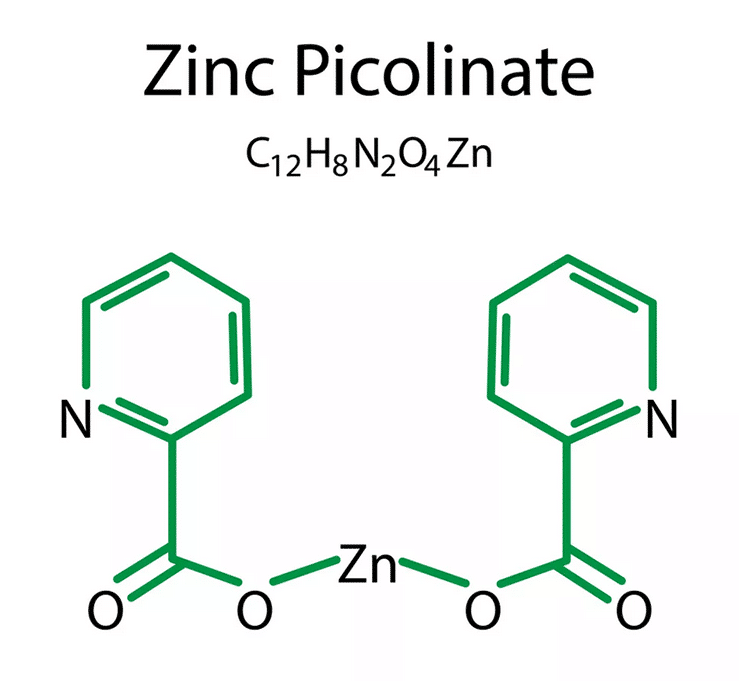
Cell Signaling and Gene Expression: Regulating Immune Responses
Zinc also influences immune responses through its role in cell signaling and gene expression. Zinc modulates various signaling pathways that regulate immune cell activation, proliferation, and differentiation [8]. Additionally, zinc is involved in gene expression by binding to DNA-binding proteins, thereby affecting the transcription of immune-related genes [9]. This regulatory role ensures a coordinated and targeted immune response.
Zinc Deficiency and Poor Outcomes: COVID-19
Zinc deficiency has been linked to negative outcomes with COVID: One study showed that for those over 65, upon entry to the hospital, zinc status was linked with mortality. Participants with low zinc status, measuring under 49 mcg/dl, had a 20% mortality risk. Conversely, those with zinc over 62 mcg/dl had a 5% mortality risk [10].
If you are zinc deficient, taking zinc when sick can still help, but not nearly as well if you already have adequate zinc levels in your body.
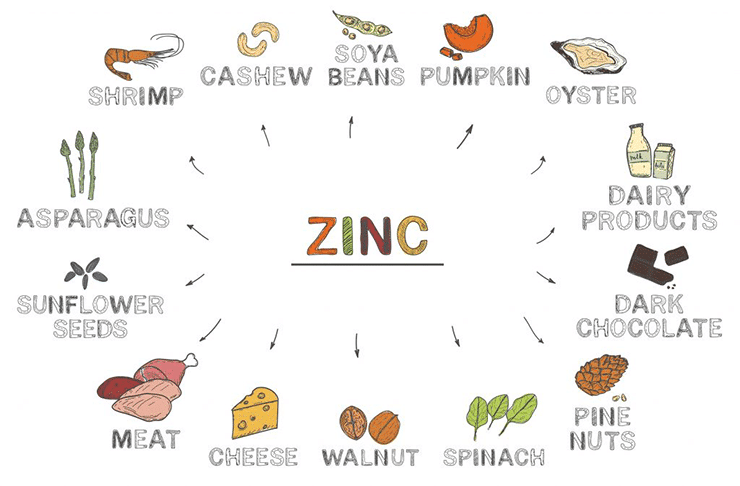
Supplementation
The RDA for Zinc is 11mg for men and 8mg for women. This is set to prevent deficiency and not to optimize zinc levels in the body. Simply taking daily zinc as a single mineral supplement is not advisable.
Optimal blood levels of zinc 80-120 mcg/dL.
It’s important to strike a balance, as excessive long-term zinc intake can have adverse effects. Continual usage of zinc will reduce copper intake, because zinc competes with copper for absorption, and zinc will win. I know many people who took zinc for years during COVID. I appreciate that everyone is doing the best they can and trying to protect themselves. However, the issue here is that copper also significantly boosts the immune system.
Test over 35 vitamins and minerals, including zinc, copper and omega 3 and glutathione levels here:
When to Take Zinc
If you are deficient in zinc, as shown on a blood test, bring zinc up to adequate levels before getting sick.
If you have a cold, take a zinc lozenge in the first 24 hours to reduce symptom severity and duration of illness.
Other things to consider:
- Supplemental, but not dietary, iron can reduce zinc absorption.
- High levels of dietary calcium intake may reduce zinc absorption.
- Zinc improves the bioavailability of dietary folate in the body.
- Zinc is necessary for the transport of vitamin A in the blood.
Zinc Tips:
- It’s best to take minerals in combination, as they work better together and this will prevent copper from depleting.
- Check your zinc levels with a Micronutrient Test
- Take a zinc lozenge at the first sign of cold symptoms.
- Test blood levels of zinc to determine if you need added zinc support to bring your levels back up. Goal is zinc over 62 mcg/dL (but take this alongside a mineral supplement that contains copper).
- On a comprehensive blood panel, alkaline phosphatase under 50 may indicate a zinc deficiency.
- Zinc forms: Zinc Picolinate, Zinc glycinate, Zinc citrate.
- Take WITH food – zinc is known to cause a brief, but powerful stomach upset.
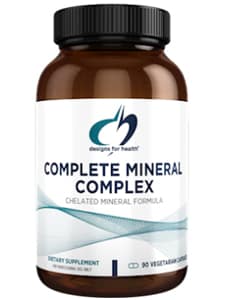 |
Complete Minerals, Designs for Health 1 capsule three times a day |
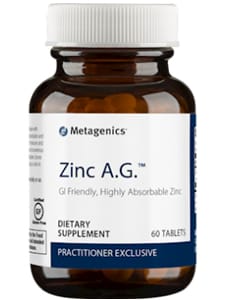 |
Zinc A.G., Metagenics 1 tablet 1-3 times a day |
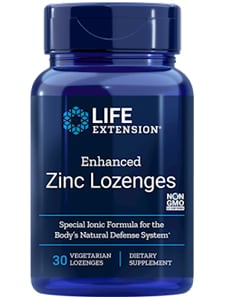 |
Enhanced Zinc Lozenges, Life Extension 1 lozenge 2-3 times a day |
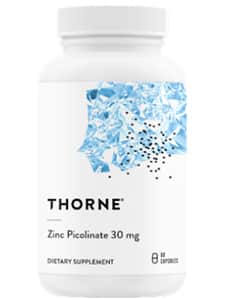 |
Zinc Picolinate, Thorne 1 capsule 1-2 times a day |
- Wessels, I., Maywald, M., & Rink, L. (2017). Zinc as a Gatekeeper of Immune Function. Nutrients, 9(12), 1286. doi:10.3390/nu9121286
- Prasad, A. S. (2009). Zinc: Role in immunity, oxidative stress and chronic inflammation. Current Opinion in Clinical Nutrition and Metabolic Care, 12(6), 646-652. doi:10.1097/MCO.0b013e3283312956
- Haase, H., & Rink, L. (2009). The immune system and the impact of zinc during aging. Immun Ageing, 6, 9. doi:10.1186/1742-4933-6-9
- Rink, L., & Gabriel, P. (2000). Zinc and the immune system. Proceedings of the Nutrition Society, 59(4), 541-552. doi:10.1017/S0029665100000781
- Skalny, A. V., Rink, L., Ajsuvakova, O. P., et al. (2019). Zinc and respiratory tract infections: Perspectives for COVID-19 (Review). International Journal of Molecular Medicine, 46(1), 17-26. doi:10.3892/ijmm.2020.4575
- Mocchegiani, E., & Muzzioli, M. (2000). Therapeutic Application of Zinc in Human Immunodeficiency Virus Against Opportunistic Infections. Journal of Nutrition, 130(5), 1424S-1431S. doi:10.1093/jn/130.5.1424S
- Fraker, P. J., King, L. E., & Laakko, T. (2000). The dynamic link between the integrity of the immune system and zinc status. Journal of Nutrition, 130(5), 1399S-1406S. doi:10.1093/jn/130.5.1399S
- Bonaventura, P., Benedetti, G., Albarede, F., & Miossec, P. (2015). Zinc and its role in immunity and inflammation. Autoimmunity Reviews, 14(4), 277-285. doi:10.1016/j.autrev.2014.11.008
- Aydemir, T. B., Blanchard, R. K., & Cousins, R. J. (2006). Zinc supplementation of young men alters metallothionein, zinc transporter, and cytokine gene expression in leukocyte populations. Proceedings of the National Academy of Sciences of the United States of America, 103(6), 1699-1704. doi:10.1073/pnas.05070141030
- Vogel-González M, Talló-Parra M, Herrera-Fernández V, Pérez-Vilaró G, Chillón M, Nogués X, Gómez-Zorrilla S, López-Montesinos I, Arnau-Barrés I, Sorli-Redó ML, et al. Low Zinc Levels at Admission Associates with Poor Clinical Outcomes in SARS-CoV-2 Infection. Nutrients. 2021; 13(2):562. https://doi.org/10.3390/nu13020562
- Prasad, A. S. (2008). Zinc in human health: Effect of zinc on immune cells. Molecular Medicine, 14(5-6), 353-357. doi:10.2119/2008-00033.
- Hara, T., Takeda, T. A., Takagishi, T., & Fukue, K. (1991). Effect of zinc on the phagocytosis of microorganisms by polymorphonuclear leukocytes. Journal of Infectious Diseases, 164(2), 137-142. doi:10.1093/infdis/164.2.137
- Wessels, I., Maywald, M., & Rink, L. (2017). Zinc as a Gatekeeper of Immune Function. Nutrients, 9(12), 1286. doi:10.3390/nu9121286
- Gombart, A. F., Pierre, A., & Maggini, S. (2020). A Review of Micronutrients and the Immune System-Working in Harmony to Reduce the Risk of Infection. Nutrients, 12(1), 236. doi:10.3390/nu12010236
Enjoying this content? Sign up for updates... It's FREE!


